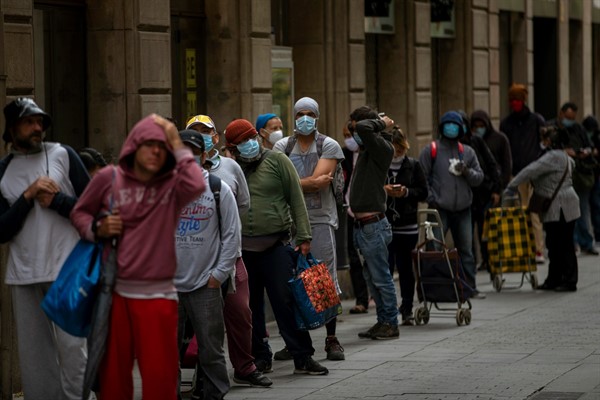MADRID—Tens of thousands of households in Spain began receiving checks last Friday under a new guaranteed minimum income program that was passed by parliament in early June. Plans to provide a guaranteed income had been part of the coalition agreement reached in January between the ruling Socialists and their junior coalition partner, the far-left Podemos party, but they were fast-tracked due to the economic impact of the coronavirus pandemic.
Spain is one of the hardest-hit countries from COVID-19, with nearly 300,000 confirmed infections and more than 28,000 deaths. Its GDP is expected to contract by more than 9 percent this year, with unemployment slated to rise from 14.4 percent to 19 percent. Long lines are forming at food banks across the country, as charities struggle to meet the spike in demand for their services. All of this has raised the stakes for Spain’s new policy, which, if implemented effectively, could provide a necessary layer of protection for the most disadvantaged Spaniards.
While some foreign journalists have confused the new policy with a kind of universal basic income, popularized in the United States by the entrepreneur and former Democratic presidential candidate Andrew Yang, Spain’s program is neither basic nor universal. Its scope is limited to the most economically vulnerable citizens. Eligibility is determined by reviewing a household’s total assets and previous year’s tax return, and recipient families are divided into 14 different types; adults living alone qualify for the lowest monthly rate of 462 euros ($519), while larger families can qualify for up to 1,015 euros ($1,140).

